Creech Jones Announces End of Mandate
A two-day debate on the future of Britain’s presence in Palestine begins in the British House of Commons. Eventually it is decided to terminate the 1922 League of Nations Mandate for Palestine.
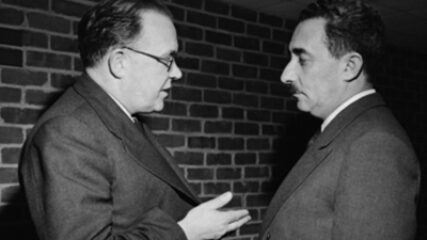
A two-day debate on the future of Britain’s presence in Palestine begins in the British House of Commons. Eventually it is decided to terminate the 1922 League of Nations Mandate for Palestine.
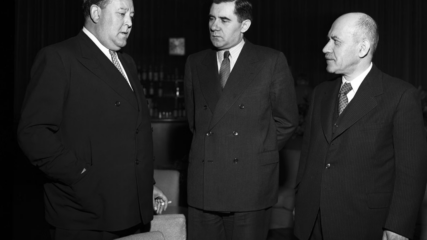
Soviet Foreign Minister Andrei Gromyko proposes a unitary state for Palestine, but vows to support partition if it is deemed the only workable solution.
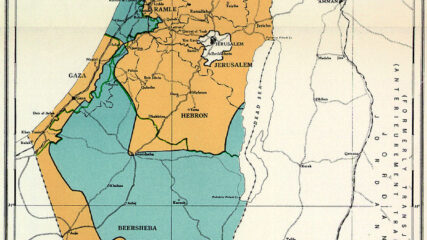
April 2, 1947 The British government notifies the United Nations of its intent to bring the question of Palestine’s future before the next U.N. General Assembly. The United Kingdom also requests a special General Assembly…

A Land Transfer Committee report reveals that Arabs in Palestine willingly continued to sell land to Zionists in the early 1940s despite the British legal prohibition on doing so.
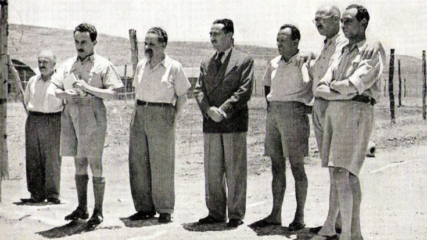
November 1, 1945 The newly formed Jewish Resistance Movement sets off explosions at more than 150 sites along the railway system of British Mandatory Palestine and blows up three British gunboats in the Jaffa and…
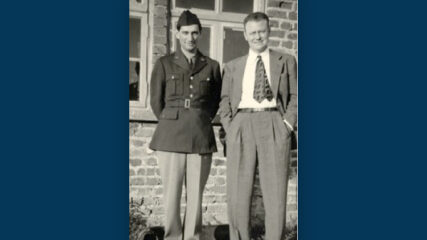
The Harrison Report, an inquiry into the conditions of displaced persons camps in occupied Germany, reveals that many of the rumors of poor treatment of Jews are indeed true and that “we appear to be treating the Jews as the Nazis treated them, except that we do not exterminate them.”
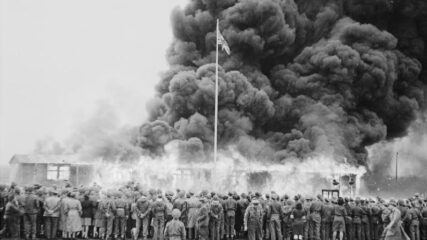
April 15, 1945 The British 11th Armored Division liberates the Nazis’ Bergen-Belsen concentration camp in northern Germany, discovering 60,000 starving prisoners, most of them seriously ill, and 13,000 unburied corpses. They are the remnants of…
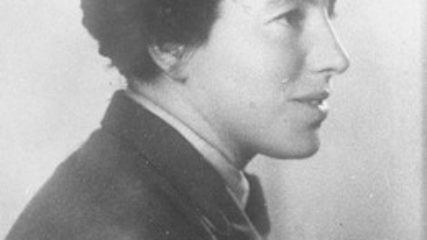
November 20, 1944 Haviva Reik and two other paratroopers from British Mandatory Palestine are among about 40 Jewish fighters executed by the Nazis after the suppression of an uprising in Slovakia. Reik, who was born…
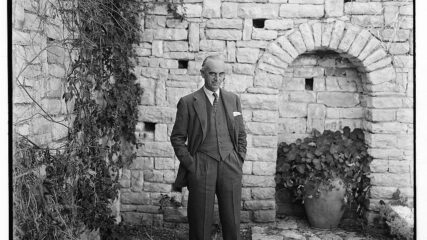
Rattled by numerous attempts on his life, and fearing for the safety of his family, MacMichael steps down in August 1944.
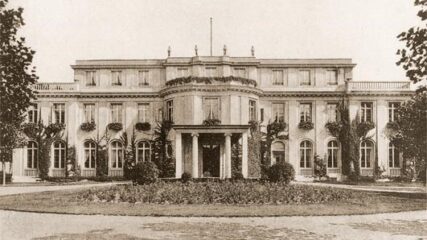
Nazis draw up a plan for the “Final Solution” of European Jewry in the Berlin suburb of Wannsee.
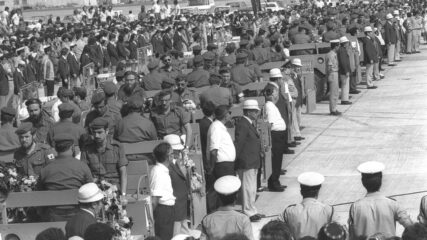
Weightlifter Yossef Romano, one of the eleven Israeli athletes murdered at the 1972 Munich Olympics, is born in Benghazi, Libya.
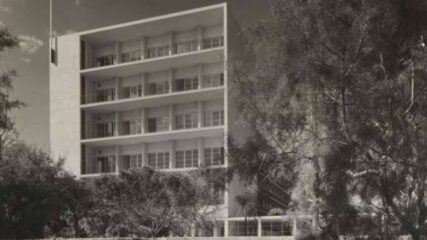
December 22, 1938 The Rambam Health Care Campus opens as the British Government Hospital of Haifa and is hailed by the British high commissioner for Palestine, Harold MacMichael, as the “finest medical institution in the…
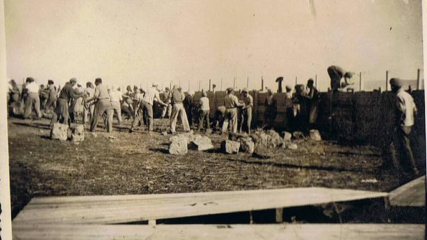
Kibbutz Kfar (Village) Ruppin is established under the framework of the “Tower and Stockade” movement in Zionism, which takes place primarily between 1936-1939.
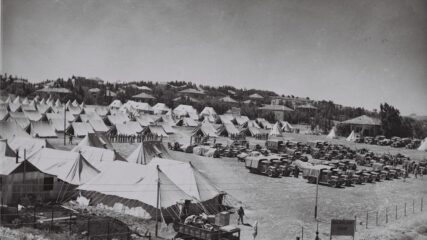
In the midst of the 1936-1939 Arab revolt, a debate over British policy in Mandatory Palestine is held in the House of Commons.

At the conclusion of a four-day conference in Cairo, Egypt, Arab leaders adopt the Resolutions of the Inter-Parliamentary Congress. The conference and resolutions are a response to the British Peel Commission Report of 1937.
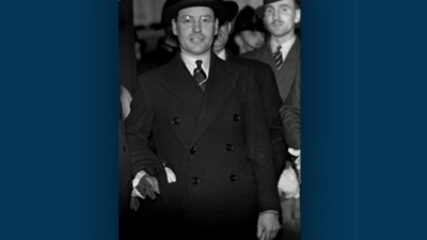
As part of the Zionist strategy to engage the British government in political negotiations, Chaim Weizmann airs his grievances against the British government for reversing their pro-Zionist policy.
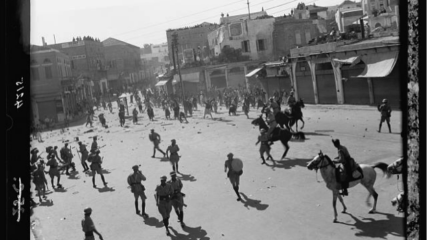
Violence between Jews and Arabs quickly escalated as Arab workers went on a six-month strike as violence erupted in different parts of British-ruled Palestine.
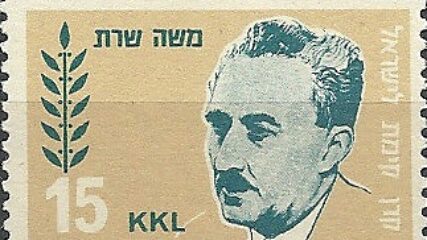
Zionist leaders debate how to confront proposed British restrictions on Jewish land purchase in Palestine.
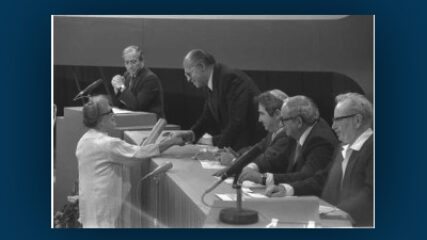
The same day that Adolf Hitler is appointed Chancellor of Germany by President Paul Von Hindenburg, Recha Freier establishes the Committee for the Assistance of Jewish Youth.
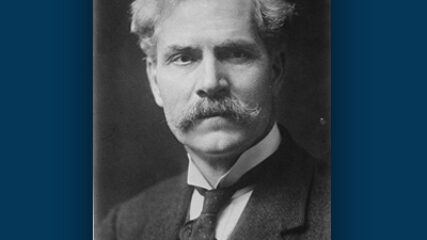
The White Paper contained distinct threats to the geography of the Jewish National Home. The subsequent nine years saw unprecedented growth of Jewish demographic and physical presence in Palestine.

In a diary entry, Frederick Kisch, the head of the Political Department of the Jewish Agency, notes that most Arab leaders “recognize that the policy of non-cooperation with the Government has been a failure.”
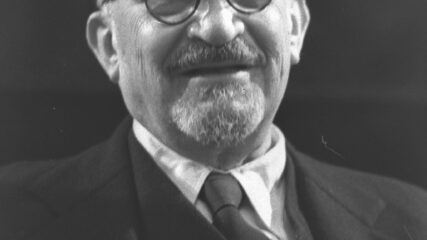
The Jewish Agency holds its first meeting on August 12, the day after the conclusion of the Congress. With so many Jews having immigrated to the US over the previous four decades, American presence in the Jewish Agency had become financially and politically significant for Zionism’s key growth in the United States.
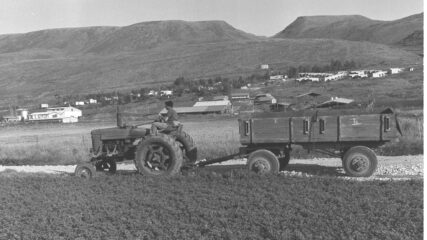
In border designations for states drafted primarily by Britain and France after WWI, the new state of Syria gains control of the Golan Heights.
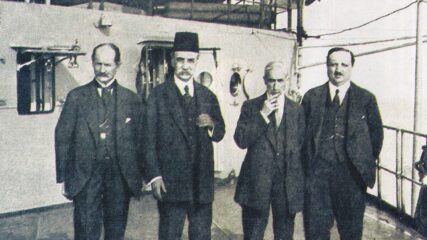
Following the San Remo conference in April 1920, a treaty is signed between the Allies and the Ottoman Empire in the town of Sevres, France, officially breaking up the Ottoman Empire.